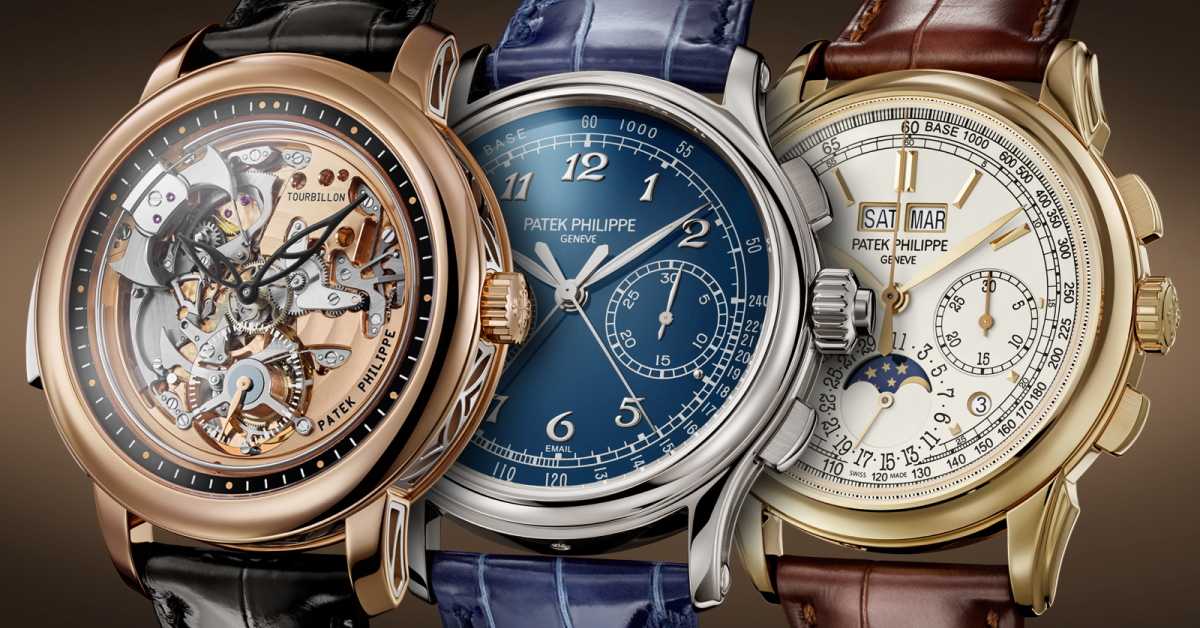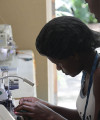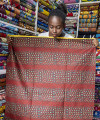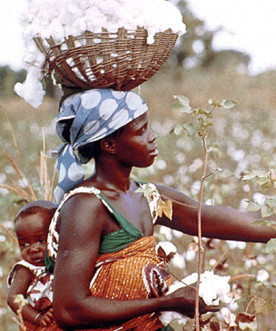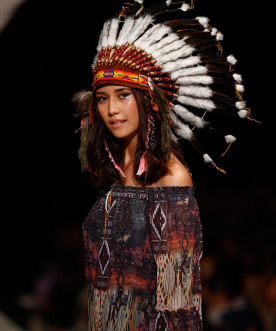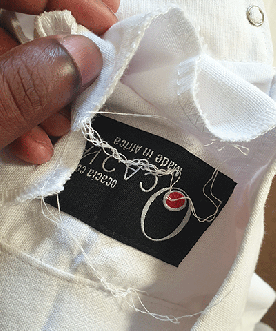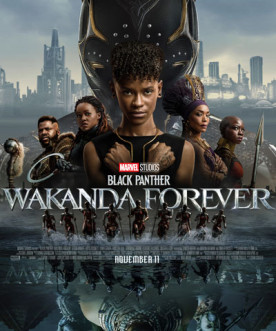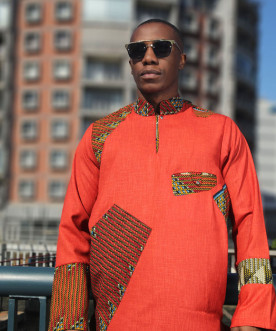Price of Handmade
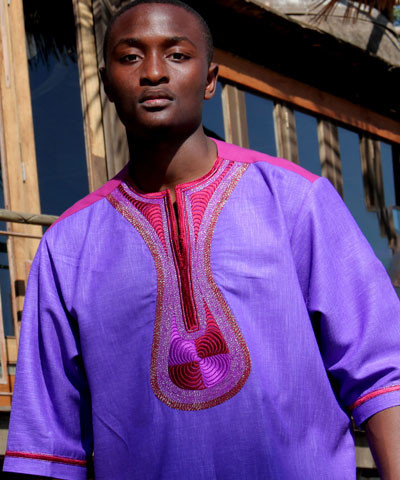
Jun 18 2020
Categories: Business of Fashion
When you are ignorant of culture and economics then you might make crazy statements. But it is cool, because we are all ignorant in one way or another. But once you been told you come out of that ignorance. The way we deal with it is by asking people who seem to have issues with premium African products is "Every other group on Earth produce products at different price tiers and obviously different qualities for different markets, are African not allowed to do the same?" It is a very simple question that should get the most stubborn brain thinking. A simple "Yes" or "no". The African market is not a mono-economy made up of yams, potatoes, Chinese clothes, and cheap tourist statues. There are premium restaurants serving top quality and street quality (as in Ethiopia), there are proper African masks that take 4 months to make and cost over $2000, and there is Ocacia doing premium African clothes. If you go to Japan you can buy Sushi for $2 or for $250 (see video below).
Someone said most Africans are too poor to afford luxury goods. So that the only ones that can afford to represent the 10%. What do you think would be a good market then? (assuming this person 10% is accurate)10% is a pretty huge market if no one is doing it. Sounds like an excellent business plan to me. And the problem with a lot of us is our mindset. We are not traditionally coming from business cultures and the business mindset (especially at an advanced level) is still something that escapes us. So in comes, G-Star Raw to South Africa and makes a killing off of the 10%. In come Tommy and Sissy Boy, and Cartier, and Rolex, and Tag, and Gucci. I mean Samsung makes phones that cost over $1000 clearly they are thinking that 10% is worth it. God help us to think straight.
When it comes to the failure of the African fashion industry people have the old myths about why it is the case. Some people blame the price of African clothes. But there are many ways this has been debunked. And we see that when we look at everyone who makes low-priced African clothes. Today we are going to collect some shirts from a friend in the city and he charges ultra-low prices and targets the local market. So how is he doing? Well, he moonlights as a security guard and struggles to pay $100 a month in rent. Every single one of them is hand-to-mouth--just like the woman in the photo. Despite being a highly skilled professional embroidery artist. And on our last count, there are 6 left in Durban. Every year the number drops as they quit. So this silly idea about high prices stymies the industry is debunked! Non-Support point blank is the reason-- at any price point.
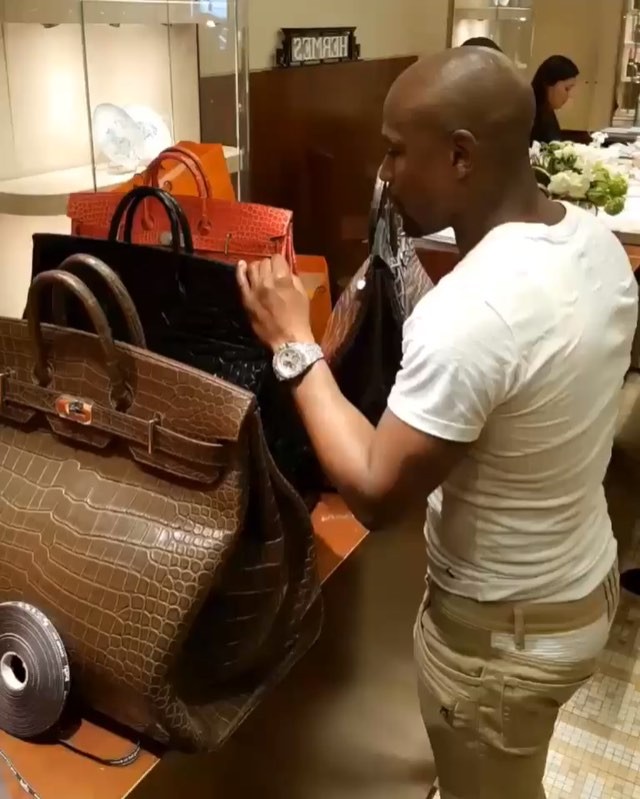
Photo of Mayweather spending $400,000 supporting White economic empowerment.
Ocacia is not the first to try (keyword) to match luxury to African products. But one thing that is unique in our case is we are independent (more on that later) and we are African owned. You can find a certain company showcasing luxury African goods coming out of Ethiopia with a "celebrity African" fronting it. But the investment is NOT African. It is financed by big companies and so well-financed it does not fail. So we need to be careful when we look at a business from the outside. The hard question concerning an African- luxury market is that it is not very viable comparatively. So that is the bad news for this decade. And the failure is not due to "lack of money" as some dullards suggest, it is due to lack of valie!
People often wonder why African clothes usually cost more than the clothes they buy on the high street. And honestly, you can use your own thinking to figure that out. Something made in bulk for everyone will cost way less than something handmade just for one person. When you visit Saville Row in London for a bespoke suit be prepared to pay $8000 for a suit the Chinese will try to sell you for $399. On the outside, they may all look the same, but are they the same? And the truth is if you are confused on this point then there is no need to keep reading. If wearing what everyone else is wearing (like an army of robots) is your thing then it is cool. We are all different, and some of us want to be unique, while some of us are not bothered. Some people do not mind how they dress as long as it is comfortable and cheap, that is not our audience.

When we discuss development one of the key things that come up is the "value" of labor. And it is very funny how so many vocal people about "human rights" are comfortable wearing clothes made cheap through a system of total exploitation. It is like "where does the meat come from" and no one wants to admit that that meat was once a cow with life that died so you can enjoy it. So when you see those jeans for $20 bucks ask yourself how can anyone make jeans for $20 when we pay almost $20 for the denim? So how are they doing it? By exploitation of course. How else? Do you think the person sewing your $20 jeans is sending his children to private schools and driving a car and going to the cinema like you? So we do not want to support that kind of capitalist economics. And there is a rising consciousness around the world that at least recognizes the ethical issue of fair wages. For too long the so-called 3rd world has been exploited to fund the luxury markets in the West. But at Ocacia we believe in fairness, that people should earn based on their skills. No one expects someone to have super skills to make jeans for 5hrs yet get paid $5 for all that 5 hours. So next time you see our prices knowing that we pay skilled people to do skilled work and that does not produce mass-manufactured junk.
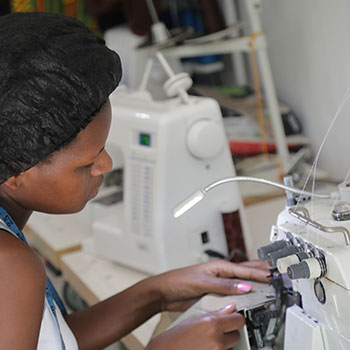
A common response from people who hate their culture is to come out sideways and claim our clothes are expensive. So let us walk with them for a while. And there are two approaches. 1 quiz them about our clothes and the quality and time it takes to make them? Ask them how much they think someone should be paid for 5 hours of work on premium linen fabric? The other approach is to ask them what price the clothes SHOULD COST since our prices are too high. They might tell you a number. Then offer them the clothes at that price and see what happens next. We are not fooled by the excuses, we been in this business long enough to know. You buy anything tailor-made in the UK -even a basic cotton shirt, you are in the $150 price point. Let us not even talk about Linen with complex embroidery being sent 4000 KM from Africa. There is no quality African store even in Africa selling anything for less than $50 bucks, designer African clothes in South Africa are easy $70 bucks and up (and still not at our quality level). And you have to come to SA and collect them.
Price of African quality
The average price of a linen handmade shirt on our site with embroidery is $100 US. What about other outlets?
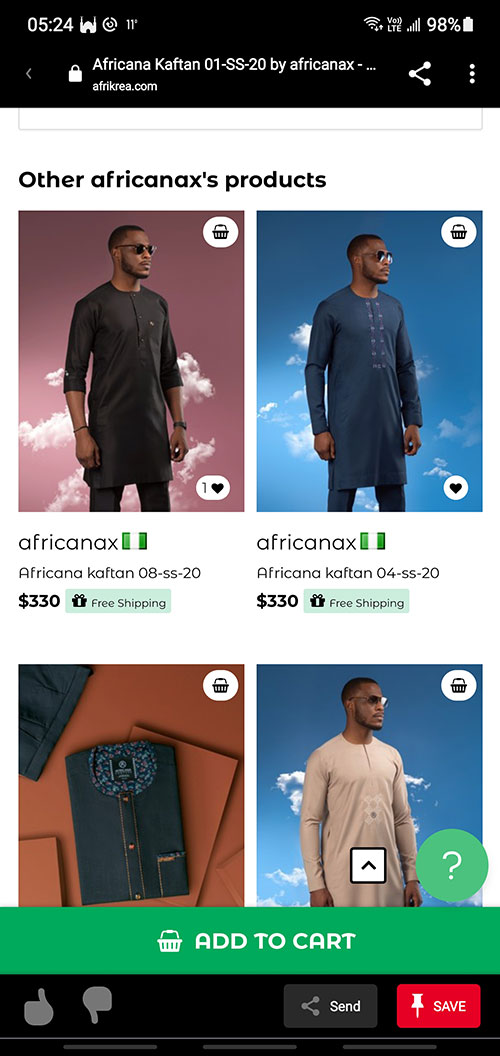
What about Southern Asian clothes? Do the research and see what their market demands for the premium stuff.
HOW DO WE GET OUR PRICES?
How do you price clothes? I use to wonder the same thing. And most who know will not share. Pricing clothes is pure business. I know for some they just pick a number out of the sky and see how things go. But obviously, an item made from expensive fabric (which has no bearing on the quality) will cost more than one made from less expensive fabric (notice I did not say cheaper). Regardless of the price of fabric if it is limited and a one-off (never to be repeated) that puts a serious premium on it. The other thing that affects the final price is shipping. I know you think you paid for it when you got a flat rate but our shipping is way beyond what we charge. Shipping represents the single biggest cost beyond a shadow of a doubt. So what is left? a more complex garment will cost more than a less complex garment. So imagine how long it takes to make 1 denim jacket! When we first introduced jeans, we took zero profit for the first year because we wanted to push them. Our jeans do not cost $85 to make. The real value of our jeans is closer to $150. And how do we arrive at that? Simple what should a unique craftsperson earn to live like everyone else? Why should a British or Italian tailor be paid a ridiculously totally different thing and an African one in Africa be paid another thing if their skill sets are the same?
QUALITY VS QUANTITY
But as a business, we had to figure out what it is we wanted to do. Make a lot of clothes at the mid-market or make really special clothes at the upper market. Anyone who knows about profits knows you can make the exact same money doing a higher quality product at a lower turnover. There are tailors who make one jacket a week and earn way more than people who sew 1000 shirts a day. By having a higher price point we can have fewer but more skilled tailors who do not have to worry. They can spend endless time on perfection. We have clothes that preparing the embroidery takes 3 hours. We can do that once clothes are priced properly. For those that want that premium exclusivity—then we can do it. We do not need 100 sales a day because that would mean we are putting out 100 items of lesser quality.
If anyone can take professional pictures then the value of professional pictures goes down. Luckily they cannot although cheating cameras are really getting close. Having drone footage in your video use to be way more expensive than it is now. So there is a value service based upon way more than the sum of their parts.
I do not know if the Chinese are using pixies to do their sewing but I have no idea how they can sell anything so cheap. Maybe it is part artificial to destroy other people's markets./
BRAINWASHING FASHION CON
Givenchy Tee for $450 US
So you hear people use the word expensive when it comes the tailor-made African clothes that take 7 hours to make. For example like our Tabaski top. So

$350 for a Markus Lupfer Tee with a Bunny
what do you think of this Givenchy shirt? It takes 8 minutes to make in probably Bangladesh and cost $500 Bucks. But Black rappers will rush to wear it to be part of the crowd. The other Tee is by Markus Lupfer and costs $350 Yes seriously. This guy is a big name in design for doing a Bunny T-shirt for $350. Let me tell you guys a secret. The biggest con industry in the world is designer fashion. More than Hollywood, more than music (singles and albums), more than banking and paper money. HYPE is the only thing that floats it. Compare all these mass-manufactured clothes to our Tabaski top which cost $180 and takes 7 hours and 3 people to make. But they say we are expensive.
VALUE OF SKILLS
The value of an artisan's skills: What confuses a lot of people is they will always be someone out there with skills (we can debate the quality) who will do something for very low money. Those people for usually very sad reasons have to accept peanuts for their craft. Unfortunately, what that does is lower the value of a craft. You can come to South Africa and see skilled tailors who earn $100 a month and live in a tin house with mud walls and a communal hole in the ground. Yet those same tailors in the UK can live in a 3 bedroom house in Croydon (UK) and put their kids through university-- both have the same skills. But the guy/gal in the UK is not taking their baseline from the guy who has to accept $100 a month! Because that is not an accurate way to value skills.
MARKET
Those clothes/cars/watches/services are EXPENSIVE! (as a complaint) You have heard people say this. Well, they are expensive to the wrong market!!!!!! That is all that is being said. None of the people buying 9/11 Turbos think they are "expensive" as a complaint. An office professional wants to buy a new computer monitor and he goes on Newegg and his budget is $200 bucks, someone thinks that is expensive. But a film editor or graphic editor will spend up to $1500 on a monitor (and they will not buy one). We have 3 in our graphics/editing suite. So the point here is it is almost a moot statement when someone claims something is expensive. Not even a basic Rolex is expensive if you compare it to the prices of some handmade Tourbillon watches such as Audemars Piguet. So it is only an issue of the market--not expensive or not. Expensive is paying for a product that sells for $200 that costs $10 to get to market. And when we put things in these terms then a Koenigsegg is not actually expensive but a case of " you get what you pay for."

Floyd Mayweather drops $80K on Birkin bags in under 10 minutes. Because he has bought into the White economic system. So please rethink the discussion about Black Spending.
And people do not have the skills to understand the logic of pricing and value. They let powerful capitalists set prices and they subscribe to them. But when you look at the profit margins on some basic products we all use we would be shocked at the injustices. Maybe someone thinks paying $200 for a handmade denim jacket is a lot. But what if you looked deeper into how much labor goes into that denim jacket. It is totally different than paying $80 for a mass manufactured denim jacket where the labor process is not even $10. So which one is really a deal depends on your point of view. But do not compare apples with diamond rings. Now, if the word handmade means nothing to you then we are speaking to the wrong person. There are people out there who would put a Chinese watch on their wrist others want a less a Seiko and if they can afford would gladly pay the money for a Breitling or Tag or Omega. At this level, no one is confused about why a Patek Philipe costs what it cost (the price of someone's house). So we need to get that out of the way!
There is no point in an economic debate discussing what the average African can and cannot afford unless we are suggesting that the African market is monolithic. And we can look at all the evidence of so-called black spending to see it is anything but monolithic. You have guys in South Africa getting paid R4000 a month with two kids and three girlfriends who seem to be able to afford G-Star jeans at R3000 a pop, and do not get us started on the shoes and the trips to fast food joints in the latest 3 series sports BMW. So of all the groups on Earth, the last people to discuss " What black people can afford" is "black" people.
Like every group on Earth, there are Africans who are dr and lawyers and earn money. Some are in business and want to skip shopping for suits in Saville Row and don something African but equal in quality. Where can they go? If these markets are not targetted by Africans in business then it is a market lost to Europeans and Asians who cater for those with higher taste. The market of Ocacia is definitely not the market climbing over Aliexpress for a $15 fake. Or people who still think African clothes are just African clothes unable to be represented at the couture level. Yet the same people will look at the wealthy stores around the world and wonder why we are excluded. But of course we are excluded when we have all our rich rappers bragging about how much in debt they are to European capitalism.
